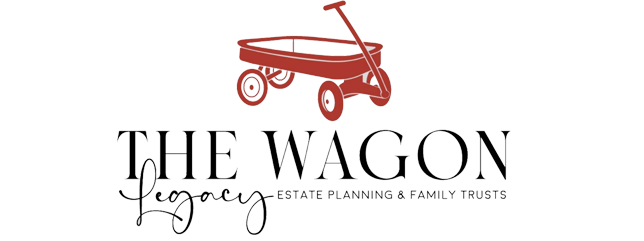We often think of inheritance as a transfer of money or property — but what we pass down includes so much more: stories, values, and even the voices of our parents echoing in our minds, reminding us to be careful, to save, and to protect what we’ve been given.
While emotional legacy shapes how we live, financial legacy can dramatically impact how we plan.
Whether you’ve just received an inheritance or expect one in the future, it’s critical to understand how it can (and should) affect your estate plan. Handled properly, an inheritance can be a tremendous blessing. Handled poorly, it can create long-term issues — financially and emotionally.
Why Receiving an Inheritance Changes Your Estate Plan
Receiving an inheritance can change your financial situation overnight — and with it, your estate planning needs. Suddenly you may be managing assets you’re unfamiliar with, dealing with unexpected tax consequences, or facing new financial risks you hadn’t previously considered.
Without proper planning, inherited assets can be lost to:
- Creditors
- Lawsuits
- Divorce
- Mismanagement or overspending
- Taxes
Estate planning is essential to avoid these pitfalls and ensure the wealth you’ve received continues to serve your family — not burden it.
How Inheritances Affect Estate Plans
An inheritance can dramatically alter your asset mix and push you into a new financial bracket. It may:
- Increase your exposure to lawsuits, as wealthier individuals are often targeted in litigation.
- Change your estate’s tax status, especially if the inheritance pushes you into a taxable estate.
- Require updates to beneficiary designations, asset allocation, or charitable giving strategies.
If you already have an estate plan, this is the time to review and revise it. If you don’t have a plan yet, receiving an inheritance is the perfect reason to start.
This is especially important if:
- You have a blended family or new dependents
- You own a business
- You want to protect assets from creditors or divorce
- You want to include charitable giving in your legacy
Preserving Your Family’s Wealth Across Generations
Statistics show that inherited wealth rarely lasts:
- 70% of families lose their wealth by the second generation
- 90% lose it by the third
One of the main reasons? Lack of communication and planning.
Too often, families avoid discussing money, fearing it will create entitlement or conflict. But the opposite is true — transparency and proactive planning are what protect generational wealth.
Your estate plan should be a tool for preserving your family’s legacy. With the right legal and financial strategies, you can pass down not only assets but also values, opportunities, and long-term security.
Inheritance + Emotion = Risky Decisions
It’s also worth remembering: inheritance often arrives during an emotional time. The loss of a loved one brings grief, stress, and reflection — not the clearest mindset for major financial decisions.
This emotional state can lead to:
- Impulse purchases
- Generosity driven by guilt or nostalgia
- Risky investments
- Missed tax and planning opportunities
It’s no surprise that many inheritances are spent within five years. That’s why having a plan — and support — is so crucial.
Get Professional Guidance Before Making Major Moves
Whether you’re inheriting real estate, retirement accounts, or a mix of assets, it’s important to understand:
- How and when you’ll receive the assets
- Tax implications (including potential capital gains, income tax, or estate tax)
- How to title and manage new assets
- What protections you need (trusts, insurance, etc.)
- How to update your own estate plan
Work with both an estate planning attorney and a financial advisor to create a strategy that honors the legacy left to you — and protects your own legacy in turn.
Let’s Talk About Your Legacy
If you’ve received an inheritance — or expect to in the near future — we’re here to help.
Let’s create a plan that reflects your goals, protects your family, and ensures that what you’ve been given is preserved and passed down with intention.
📞 Schedule a consultation today to start the conversation.
